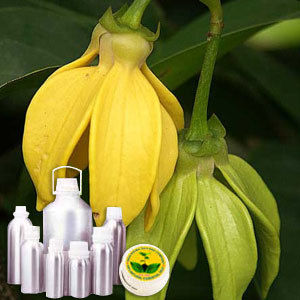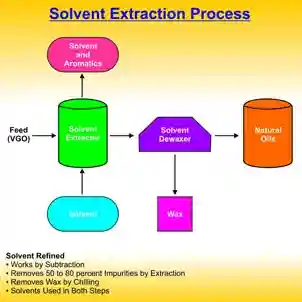Botonical Name | : | Cananga odorata | |
CAS # | : | 8006-81-3 | |
Country of Origin | : | Madagascar | |
Color & Odor | : | Pale yellow clear liquid @22°C with Sweet floral-balsamic odor | |
Solubility | : | Insoluble in water, soluble in alcohol and oils | |
F.E.M.A. # | : | 3119 | |
Specific Gravity | : | 0.930 – 0.961 @ 20°C | |
Optical Rotation | : | -45.0° to -15.0° | |
Refractive Index | : | 1.495 – 1.510 @ 20°C | |
Flash Point | : | >100°C | |
Major Constituents | : | Germacrene D, geranyl acetate, Linalool. | |
Plant Part Used | : | Flowers | |
Extraction Method | : | Steam Distillation |
DESCRIPTION:
Ylang Ylang tree is grown in countries like Madagascar, Sumatra, Java and in Comoros region. The term 'ylang ylang' denotes 'flower of flowers'. This long tree is the source of Ylang Ylang Oil which is used as an important ingredient for hair care products across the Europe. CONSTITUENTS:
Germacrene D, geranyl acetate, Linalool, Beta-Caryophyllene, GeraniolAROMATIC SUMMARY / NOTE / STRENGTH OF AROMA:
The base note gentle smell of this oil has pleasant and floral aroma that has captivating effect on mind. BLENDS WITH:
Ylang Ylang Essential Oil can be combined with the oils of lavender, bergamot, sandal wood and grapefruit. COMMON NAMES:
This oil is commonly referred as Flower of flowers. USES:
This fragrant oil has wide applications in cosmetics and pharmaceutical arena. The tranquilizing effect of Ylang Ylang Oil helps to relax nerves for treating stress, agony, fear, anxiety, trauma and shock. Its stimulating attributes are effective in dealing with frigidity and impotency. The constituents of this oil are beneficial for normalizing high level of blood pressure. Also used for curing infections of intestine, this oil is preferred by dermatologists for its skin beneficial value. The oil of ylang ylang accelerates hair growth. 


































